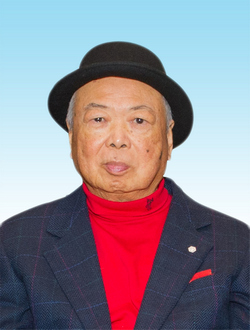Hui Yin Fat


Mr Hui Yin Fat, OBE, JP
Doctor of Social Sciences, honoris causa (2014)
With a true Christian spirit, Mr Hui Yin Fat has dedicated himself to the service of others. Over the last 50 odd years, Mr Hui has emerged as one of the most outstanding and undisputed pioneering social work leaders in Hong Kong. Not only was he a tireless trailblazer in the development of social welfare services and social work education, but Mr Hui was also a much acclaimed figure for the social welfare policies he advocated, which remain his legacy and the continuing impact they have in Hong Kong today.
Mr Hui graduated from The University of Hong Kong and subsequently attended Case Western Reserve University in Cleveland, Ohio from where he obtained his Master’s Degree in Social Administration in 1967. Upon his return to Hong Kong, he joined The Hong Kong Council of Social Service (HKCSS) as he dedicated his working life to the provision of social welfare services.
HKCSS was founded in 1947 as a federation of non-governmental social welfare organisations and agencies and in 1973, Mr. Hui was appointed its first Chinese Director. During his long tenure as Director, Mr Hui made HKCSS a platform for professional exchanges and interflow among the members, establishing a high level of welfare service standards and furthering welfare services to meet the needs of young people and the elderly in particular. His foresight and vision enabled the establishment of two other service organisations which remain as effective today as they did at their inception. These are the Agency for Volunteer Service and the Hong Kong PHAB (Physically Handicapped and Able-Bodied) Association. Mr Hui also facilitated the setting up of HKCSS career counselling service as an independent entity, thus making possible the Hong Kong Employment Development Service Limited, which offers more extensive and effective services to a wider community.
Mr Hui is renowned, not only in the Asia-Pacific region, but also globally as a leader for his advocacy in promoting best practices in social welfare services. From 1976 to 1980, he served as Vice President of the International Council on Social Welfare, after which he was elected President of the Council and served in that capacity until 1984. Between 1972 and 1976, he was Vice President of the International Federation of Social Workers and from 1988 to 2000, Mr Hui served as Vice President of the International Federation of Ageing, contributing significantly to China’s entry into the organisation as a Member.
The standard and development of social welfare services depends very much on the competence and training of social workers. One of the greatest achievements in Mr Hui’s long and meritorious career is his dedication to social work training. From 1986 to 1998, he chaired the Advisory Committee on Social Work at the Hong Kong Baptist College (later the Hong Kong Baptist University). During his 12 years as Chairman of the Committee, Mr Hui lent his experience, expertise and wise counsel to the development of the University’s Bachelor’s Degree in Social Work and guided the programme through stringent internal and external assessments and accreditation requirements.
Apart from the Baptist University, Mr Hui also sat on social work advisory bodies of four other tertiary institutions in Hong Kong and was Chairman of two of these Committees. He also served as the Chairman of the Provisional Council of Social Welfare Personnel Registration, during which he contributed tremendously to the standardisation and upgrading of qualifications among practitioners in Hong Kong.
Between 1985 and 1995, Mr Hui was elected to the Legislative Council as the representative of the Social Welfare functional constituency. He was also a Member of the Provisional Legislative Council of the Hong Kong Special Administrative Region from 1997 to 1998. In 1992, Mr Hui was appointed to the Executive Council, where he proactively reflected to the Government the views and opinions of the social welfare profession. He played a leading role in the institution of the Comprehensive Social Security Assistance Scheme and the setting up of a Central Provident Fund Scheme. Also, through his strenuous efforts, legislation regulating residential care homes for the elderly was written into law, as was the Social Workers Registration Ordinance, achievements he found to be particularly gratifying.
Mr Hui retired from active service in 2001, but his concern and support for the education and development of social workers persist through his personal donation to set up the Y. F. Hui Social Work Trust Fund under the Hong Kong Social Workers Association. The Fund now stands as a fitting legacy to Mr Hui as an advocate for social work continuous learning and training, both in Hong Kong and overseas.
Mr Hui is also an ardent supporter of Christian education and over the years has sat on the governing bodies and acted as supervisor of many Christian secondary schools. He has also visited and made donations to schools on the Mainland and in Cambodia.
Mr Hui, through his leadership, commitment, pioneering vision and contribution to social welfare services, locally, regionally and globally is a shining example for all of us. He is well deserved to be called “Welfare Hero” in Hong Kong.